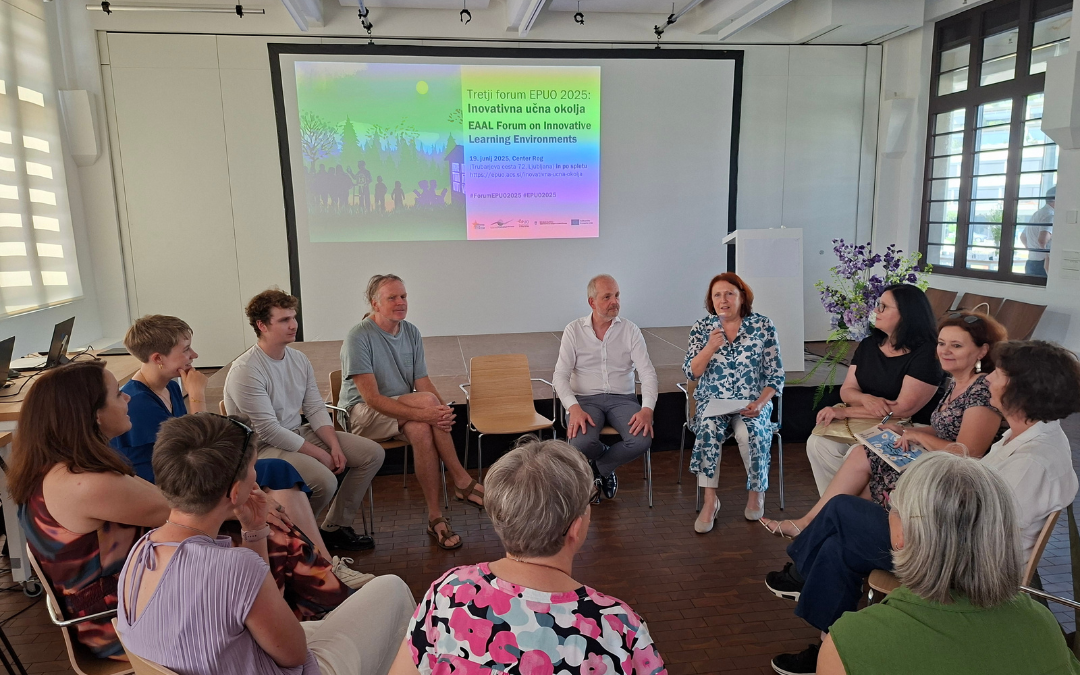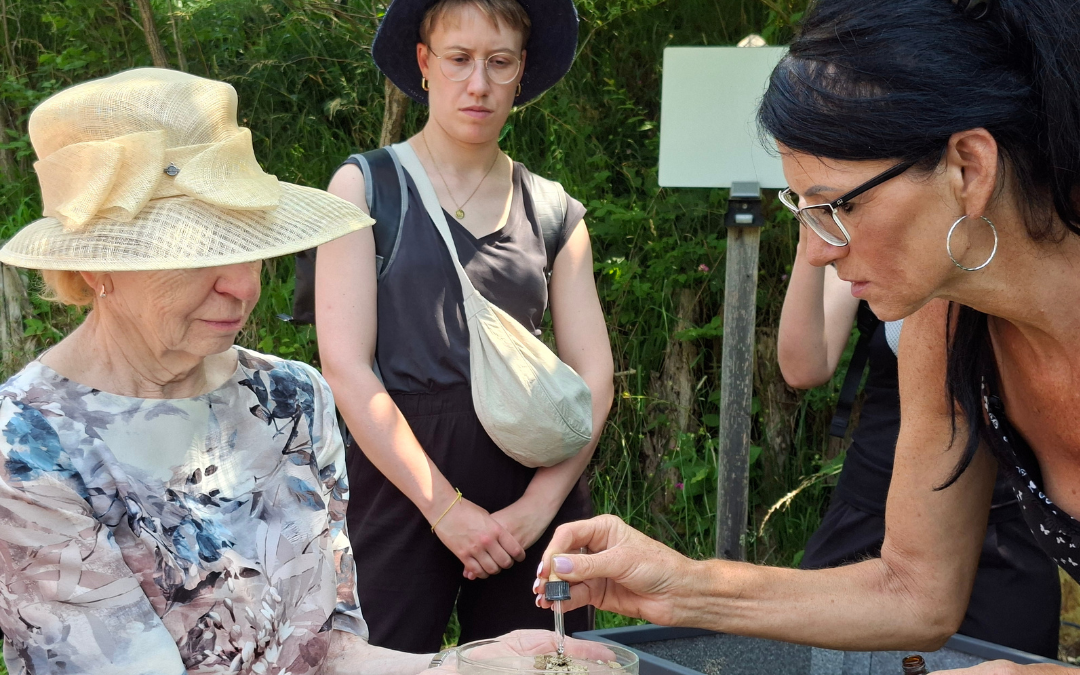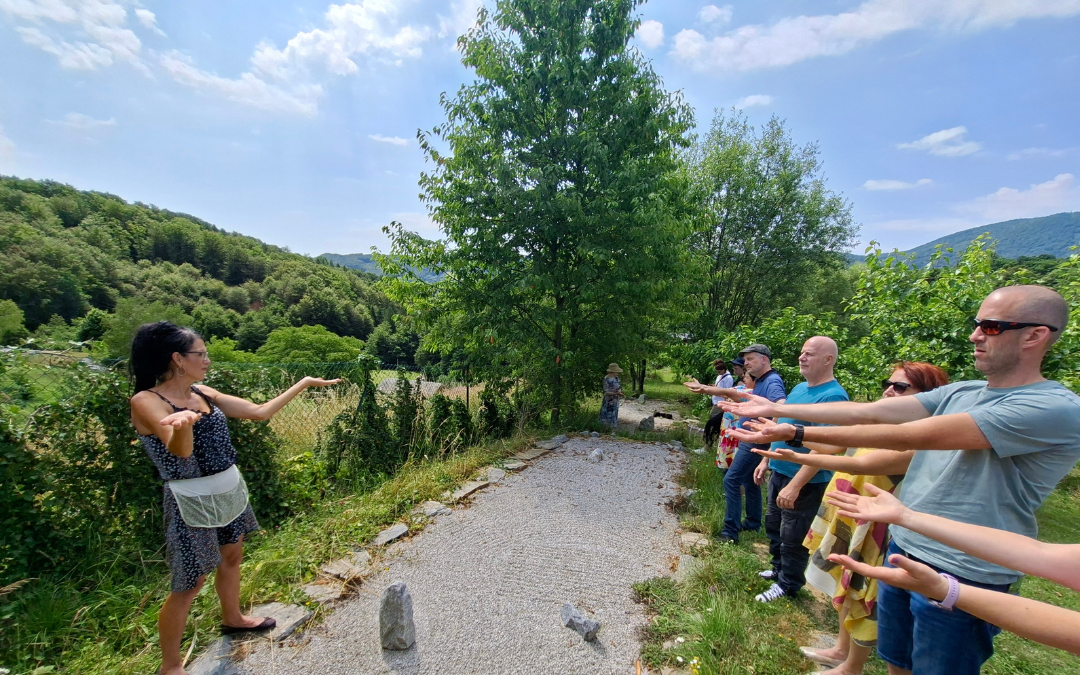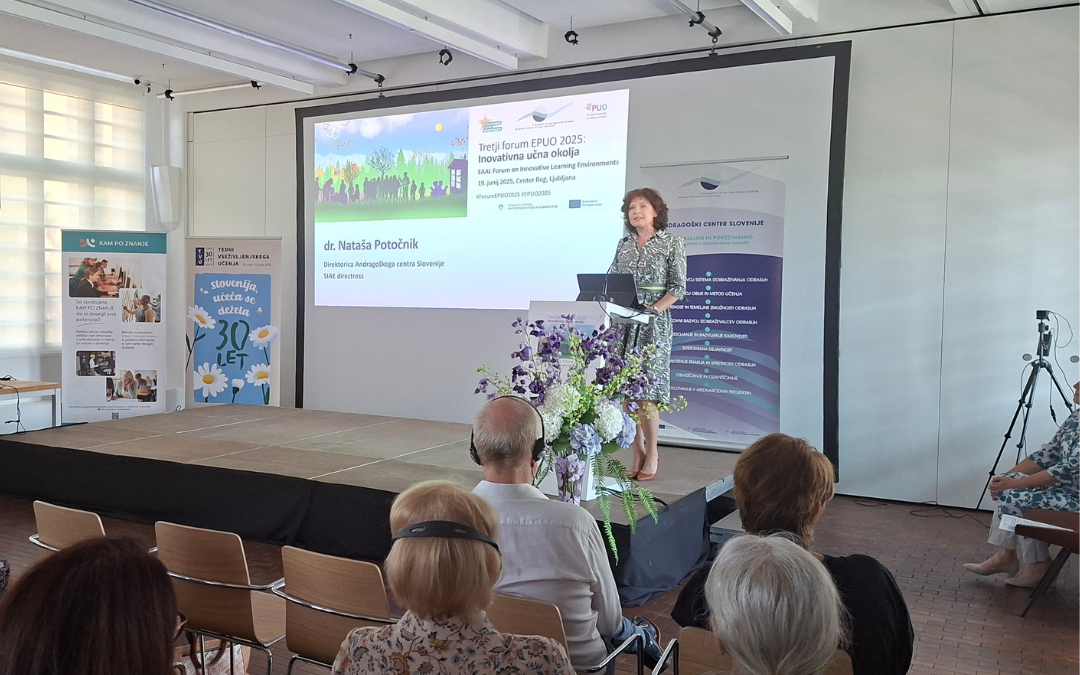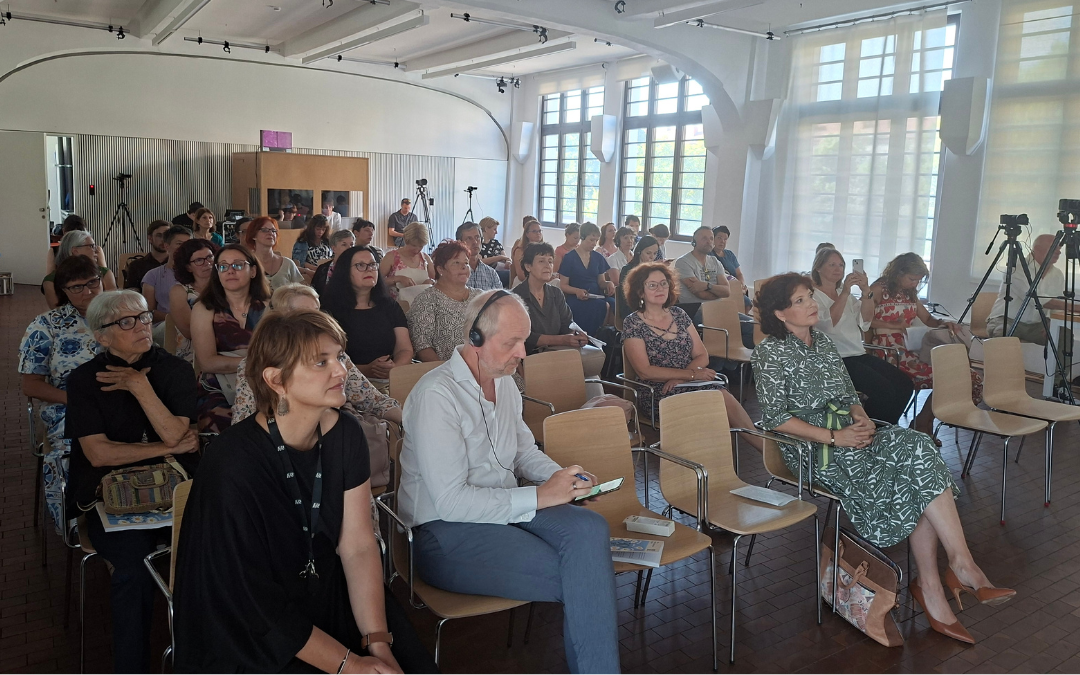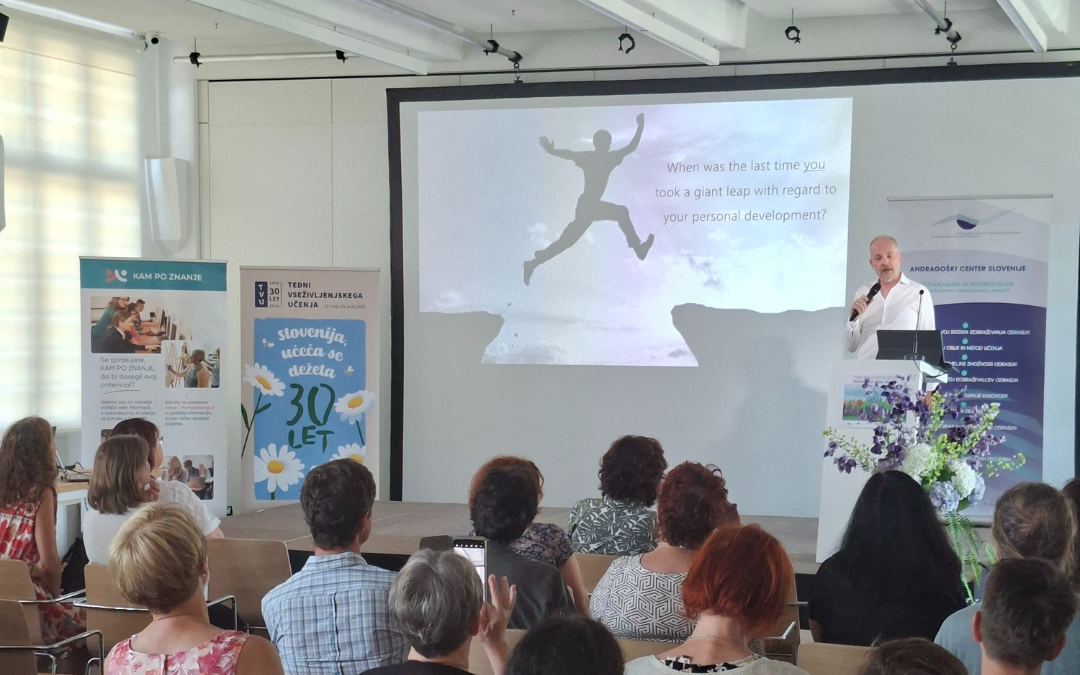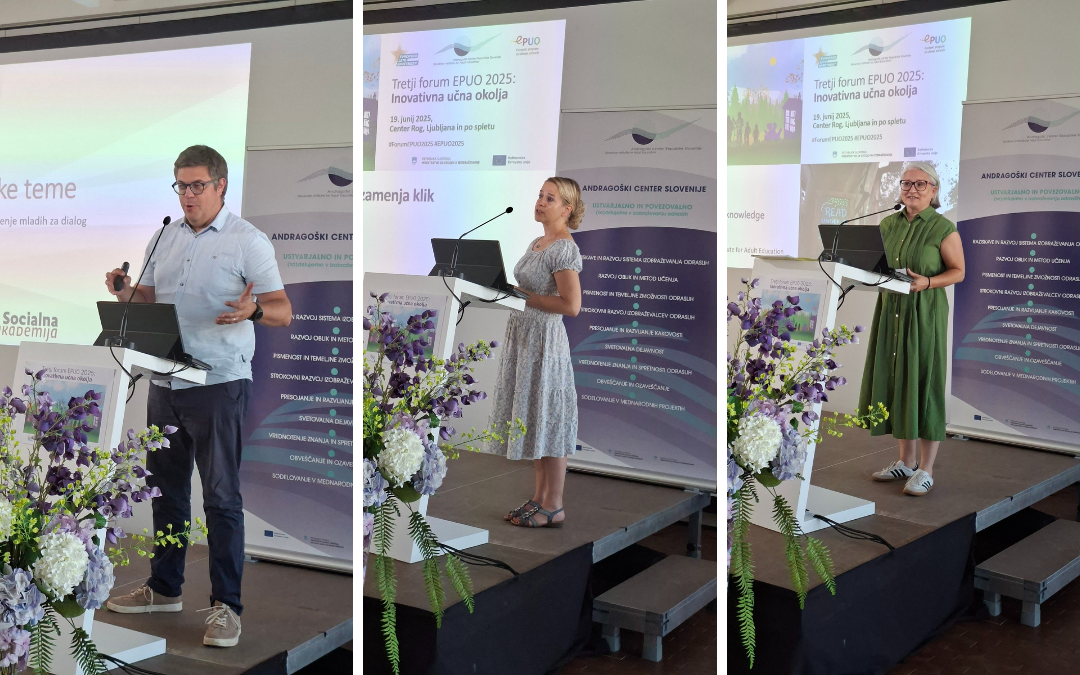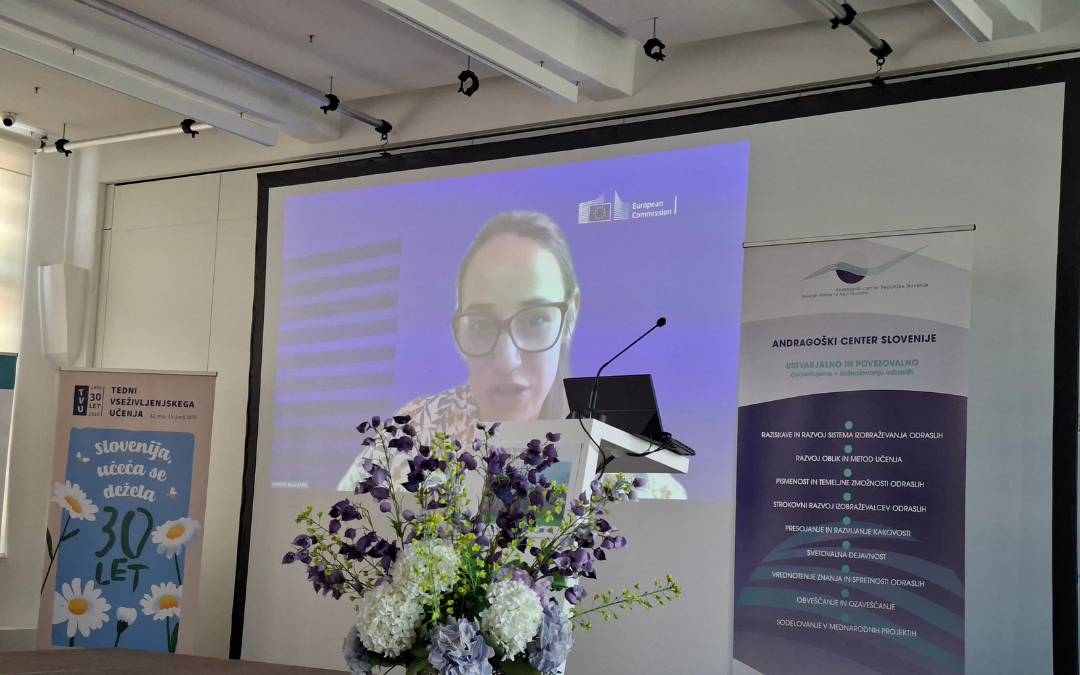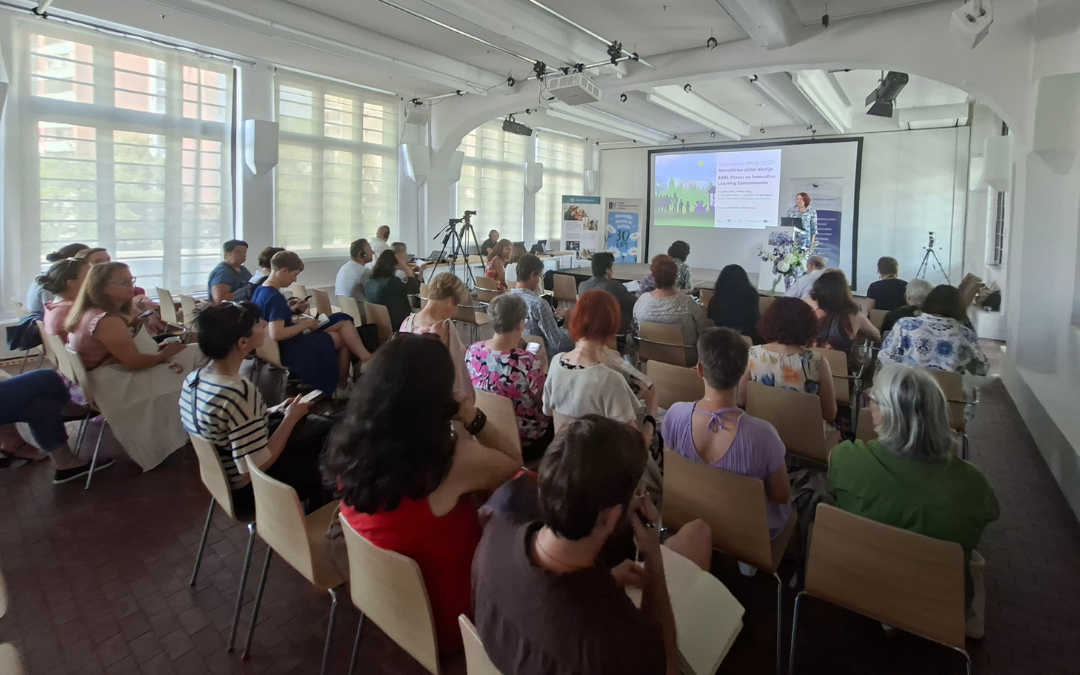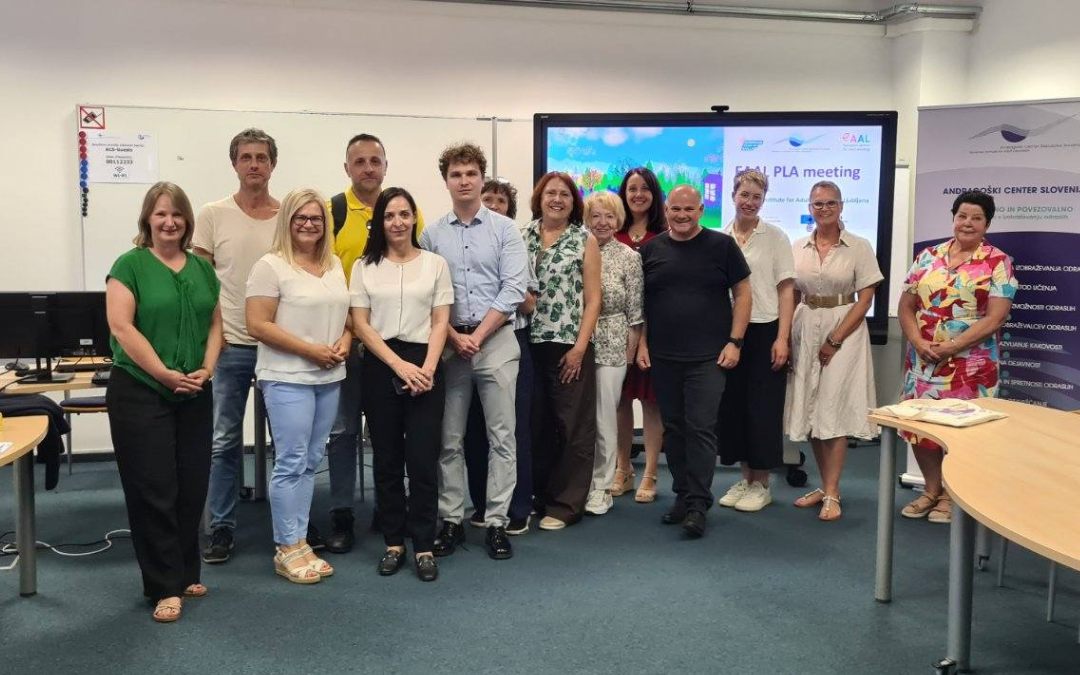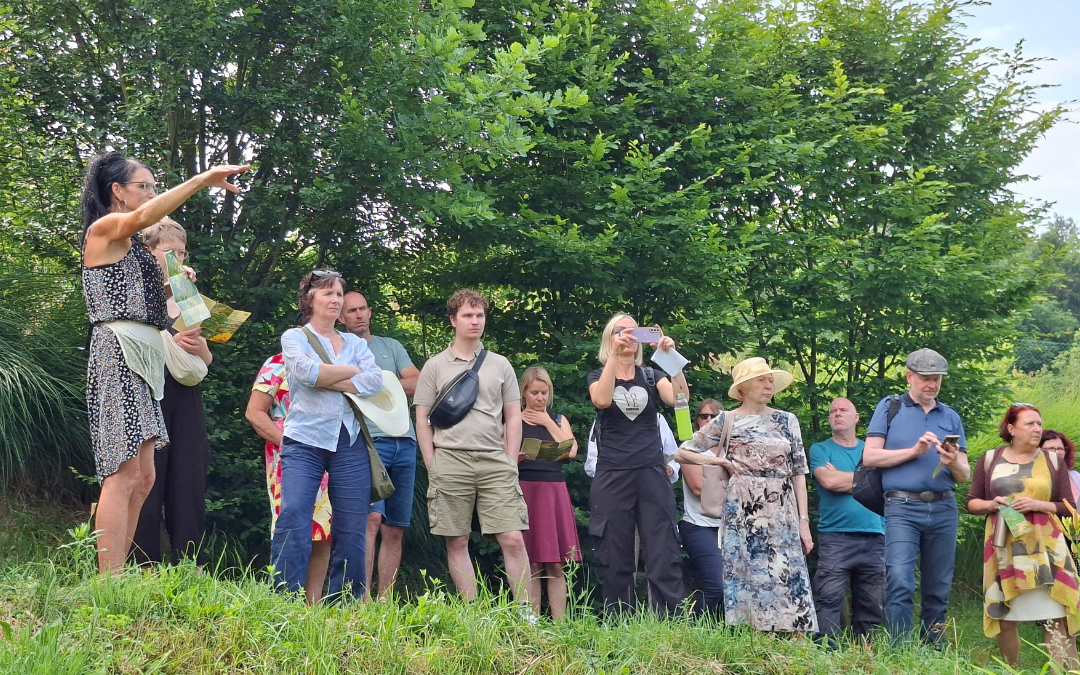What is considered pressing today includes, among other things, collaborative learning that encourages exploration and creativity. It is tailored to learners’ interests, offers practical experience and fosters a sense of active engagement in the learning process. Equally relevant are virtual learning environments and artificial intelligence, augmented reality and simulations. Today, the focus is not only on acquiring knowledge but also on developing a broad set of skills, including critical thinking, effective collaboration and problem-solving. A renewed connection to nature and cultural roots is also increasingly in focus.
The topic is undoubtedly hot, but when it comes to ALE, we may rightly ask ourselves: is this a fresh concept, or has innovation of environments, content and methods always been part of adult education’s DNA? In fact, these aspects have long been woven into our efforts; what changes, fortunately, are the forms in which they appear, as they continuously adapt to the time, place and circumstances in which we live and work.
The EAAL Forum on Innovative Learning Environments was multifaceted
The third EAAL Forum 2025 was opened on 19 June by Dr Nataša Potočnik, the Director of the SIAE, with her characteristically gentle, yet no less powerful address.
Personalisation has always been a hallmark of adult education.
She emphasised the significance of the venue – Centre Rog – as this institution perfectly embodies the very concept of an innovative learning environment. Officially established in May 2021 as a non-profit public institute in the renovated former Rog bicycle factory, an industrial symbol of Ljubljana, Centre Rog underwent a revitalisation process that began as early as 2007. This included years of participatory planning, involving more than 6,000 users, experts and organisations. Since November 2023, Centre Rog has been operating as an open creative hub, offering nearly 9,000 m² of shared workshops, project studios, residencies, a library and social spaces. Its purpose is to create a stimulating environment for creators, professionals and enthusiasts alike. It seeks to empower community-driven creativity, promote creative industries, foster cross-sector collaboration and support socially beneficial projects guided by the principles of sustainability and circularity, as explained passionately by the host and the Director of Centre Rog, Renata Zamida.
The library is the most democratic space humanity could have imagined. Our workshops follow the same principle.
The forum’s keynote speaker was the renowned educational futurist and learning designer, Dr Pieter Sprangers from Belgium. He began by emphasising the importance of enthusiasm as a starting point for learning. He highlighted the role of innovative learning environments and practices within ALE, including the concept of nomadic learning. He presented lifelong learning as a key dimension of contemporary literacy, underscoring the responsibility of local communities in bringing it to life.
We want to turn schools into beacons of learning.
Special attention was devoted to vulnerable groups of adult learners, studies on learning ambassadors and dialogue-based approaches. Dr Sprangers also touched on (re)shaping educational systems and emerging a new scientific discipline – educational design research. He concluded his presentation by reflecting on the factors that foster learning and those that hinder it.
Experiential learning brings the most critical insights.
Contemporary society requires flexible learning models and methods.
Forest libraries create ideal conditions for mindful and uninterrupted learning.
The forum also showcased outstanding Slovenian examples of innovative learning environments. Erika Švara and Alenka Štrukelj from SIAE, along with Matej Cepin from the Social Academy, impressed the audience with their dedication, making it clear that they genuinely believe in their work and message conveyed through the presentation of their contributions:
- Study Circles: When a Click is Replaced by Conversation
- Forest Libraries – Where Nature Meets Knowledge
- Empower Young People for Dialogue. Tools for Youth Workers and Educators Who Want to Overcome Polarisation
It is worth noting that the forum was initially intended to be the official conclusion of the EYS. The EC announced it would publish its official report on this initiative in the first half of 2025. Running from 9 May 2023 to 8 May 2024, the EYS aimed to raise awareness about the importance of skills across the EU. The EAAL project in Slovenia actively supported it by opening and closing national EYS events. A similar approach was planned for the publication of the final report; however, the latter has not yet been released to the public. During the forum, Maya Ivanova from the EC’s relevant directorate kindly presented several EYS performance indicators and related initiatives, most notably the Union of Skills and the Pact for Skills.
Beyond the forum: connecting before and after
The international guests, themselves national EAAL coordinators, arrived in Slovenia a day before the forum, allowing us to host an afternoon gathering at the SIAE. We presented activities that have made Slovenia a benchmark in ALE professional circles: guidance and validation in ALE and raising awareness of lifelong learning, highlighting 30 years of LLW achievements and the new Lahko.si campaign. We also heard about Estonia’s successful ALE promotion strategies from Sirje Plaks of the Association of Estonian Adult Educators Andras, while Laura Iveta Peniga from the Ministry of Education and Science explained Latvia’s approach to implementing innovative learning environments.
On 20 June, the day after the forum, a 14-member group – comprising local participants and five international enthusiasts – visited an innovative learning environment: the International Centre for Self-Sufficiency Dole, led by Dr Ana Vovk, who also holds two doctoral degrees. It was hard to grasp that Ana manages the extensive estate and processes its produce entirely on her own.
International guests, in particular, repeatedly asked Ana who helps her. She consistently replied that this is precisely the essence of her philosophy: achieving the greatest possible impact with minimal, yet highly thoughtful, work. Our external collaborator, Maja Novak, MSc, captured Ana’s insights in a video recording, which will satisfy – or perhaps awaken – your curiosity.
Considering the period 2021–2025, the third EAAL Forum 2025 is, in fact, the seventeenth EAAL forum to date. Seventeen editions, some held online only, others in hybrid formats. Seventeen groups of domestic and international guests, speakers from the world of education and often from other public and private sectors. Together, they have illuminated a wide range of current social issues, exploring the role of ALE in responding to and shaping emerging trends. How many testimonies, insights, ideas – sometimes provocative, sometimes soothing – and so many passionate actions behind them! We are deeply grateful to everyone who has shared them with us. We invite you to revisit the past EAAL forums 2021 (on the Future of ALE), 2022–2023 (on Skills for Life) and 2024–2025 and enter this treasure trove of thoughts and words.
Zvonka Pangerc Pahernik, MSc (zvonka.pangerc@acs.si), edited by Ana Peklenik (ana.peklenik@acs.si), both SIAE

